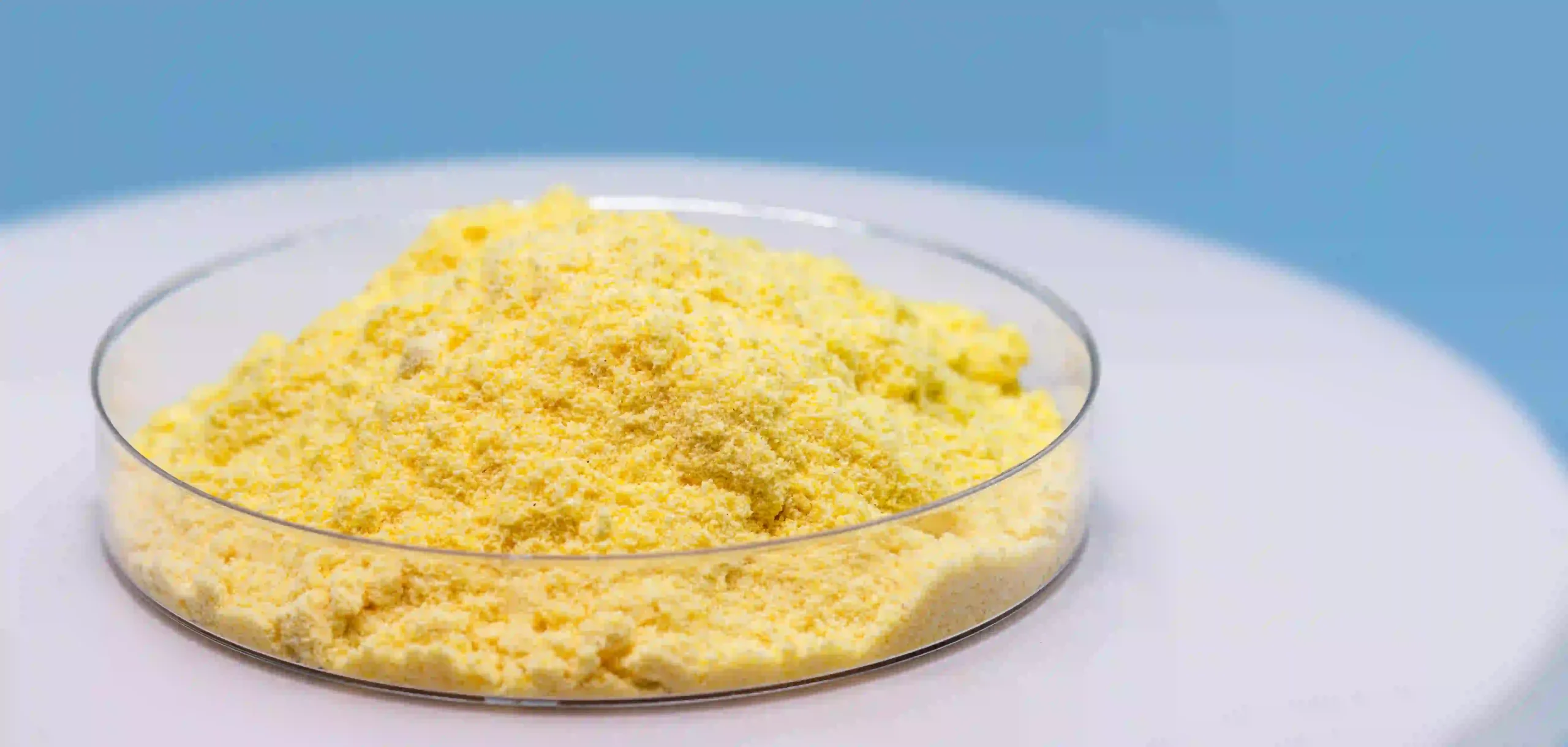What Are Apple Polyphenols?
Chemical Structure and Natural Sources
The apple polyphenol compound belongs to a larger family of plant compounds known as polyphenols, which are naturally occurring micronutrients found abundantly in apples, particularly in their skin. These beneficial compounds are characterized by their unique molecular structure, featuring multiple phenol units with hydroxyl groups attached to an aromatic ring. While the highest concentration is found in the fruit’s skin, these compounds are also present in the flesh and seeds.
Different Types and Classifications
When examining these natural compounds, it’s important to understand that they comprise several distinct subclasses. The main categories include flavonoids (such as quercetin glycosides and catechins), phenolic acids (primarily chlorogenic acid), and other related compounds. Each of these subclasses contributes to the overall health benefits that these natural antioxidants provide.
The Science Behind These Natural Compounds
Research-Backed Benefits
Scientific research has consistently demonstrated the potential health benefits of these natural compounds derived from apples. They have been extensively studied in both laboratory and clinical settings, with research focusing on their antioxidant properties and their ability to support various aspects of human health. The scientific community has shown particular interest in how these beneficial compounds interact with cellular mechanisms to provide protective effects.
Absorption and Bioavailability
Understanding how your body processes these natural compounds is crucial for maximizing their benefits. When you consume them, either through whole fruits or supplements, their absorption occurs primarily in the small intestine. The bioavailability can vary depending on several factors, including the form in which they’re consumed and individual digestive differences. Some compounds undergo transformation by gut bacteria, which can enhance their bioavailability and potentially their beneficial effects.
Health Benefits of Apple Polyphenols
Antioxidant Properties
One of the most significant attributes of these natural compounds is their potent antioxidant activity. They work by neutralizing harmful free radicals in your body, helping to prevent oxidative stress that can damage cells and contribute to various health issues. Their antioxidant properties are particularly notable because they can cross the blood-brain barrier, offering protection to neural tissues.
Cardiovascular Support
The apple polyphenol compound has demonstrated remarkable potential in supporting cardiovascular health. Research indicates that it may help maintain healthy blood pressure levels and support proper endothelial function. These beneficial effects may also assist in maintaining healthy cholesterol levels when combined with a balanced diet and regular exercise.
Metabolic Health Benefits
Your metabolic health can significantly benefit from these natural compounds. Research suggests they may support healthy glucose metabolism and insulin sensitivity. They may also play a role in maintaining proper lipid metabolism, which is crucial for overall metabolic wellness.
Apple Polyphenols in Weight Management
Impact on Fat Metabolism
Recent research has demonstrated that apple polyphenol compounds can play a significant role in supporting healthy weight management. Studies suggest these natural compounds may help regulate fat metabolism by influencing certain enzymatic activities involved in fat storage and breakdown. This interaction with metabolic processes makes them particularly interesting for those focused on maintaining a healthy weight through natural means.
Role in Blood Sugar Control
The ability of these beneficial compounds to support healthy blood sugar levels is another crucial aspect of weight management. Research indicates they may help moderate the post-meal blood glucose response, which is essential for maintaining stable energy levels throughout the day. This blood sugar-moderating effect can also help reduce unnecessary snacking and support better appetite control.
Anti-Aging Properties of Apple Polyphenols
Skin Health Benefits
Among the most exciting discoveries about these natural compounds is their potential impact on skin health. The apple polyphenol compound has shown promising results in supporting skin elasticity and protecting against environmental stressors. Regular consumption, along with proper skincare, may help maintain a more youthful appearance by supporting the skin’s natural defense mechanisms.
Cellular Protection Mechanisms
At the cellular level, these beneficial compounds work through multiple pathways to support healthy aging. They help protect cellular components from oxidative damage and support the body’s natural repair processes. The apple polyphenol content in your diet may contribute to maintaining cellular health and function as you age.

Immune System Support
Inflammation Response
One of the key benefits of these natural compounds is their ability to support a healthy inflammation response. Scientific studies suggest that apple polyphenols may help moderate inflammatory markers in the body, contributing to overall immune system balance. This modulation of inflammatory responses is crucial for maintaining optimal health and wellness.
Antimicrobial Properties
Research has shown that these compounds possess natural antimicrobial properties. While more studies are needed to fully understand the extent of these benefits, current evidence suggests that apple polyphenol compounds may support your body’s natural defense mechanisms against various environmental challenges.
Cognitive Function and Brain Health
Neuroprotective Effects
The ability of these beneficial compounds to cross the blood-brain barrier makes them particularly interesting for brain health support. Studies indicate they may help protect neural tissues from oxidative stress and support healthy brain function as we age. Their neuroprotective properties have garnered significant attention in the scientific community.
Memory and Focus Enhancement
Regular consumption of these natural compounds may support cognitive function, including memory and focus. While research in this area is ongoing, preliminary studies suggest that the antioxidant properties of these compounds may help maintain optimal brain function and support cognitive performance during aging.
Comparing Apple Polyphenols: Natural vs. Supplements
Sourcing and Extraction Methods
When considering apple polyphenol intake, it’s important to understand the differences between natural sources and supplements. The extraction process used to obtain these beneficial compounds can significantly impact their effectiveness. While whole apples provide these compounds in their natural form, along with other beneficial nutrients, supplements often contain concentrated amounts through specialized extraction methods.
Concentration Differences
The apple polyphenol content varies considerably between natural sources and supplement forms. Fresh apples, particularly organic varieties with their skin intact, provide these compounds in their most natural state. However, supplements may offer higher concentrated doses, which can be beneficial for those seeking specific health outcomes. When choosing between these options, consider your individual health goals and dietary preferences.
Recommended Dosage and Timing
Daily Intake Guidelines
While natural consumption through whole fruits is generally safe, supplemental apple polyphenol intake should be approached thoughtfully. Research suggests that moderate, consistent intake may be more beneficial than sporadic high doses. The optimal amount can vary based on individual factors such as age, health status, and specific wellness goals. Always consult with healthcare professionals for personalized recommendations.
Best Time for Consumption
These beneficial compounds may be better absorbed when consumed with meals. Some studies suggest that taking apple polyphenols with a small amount of healthy fat can enhance their bioavailability. For those using supplements, spreading the intake throughout the day might help maintain more consistent levels in your system.

Potential Side Effects and Precautions
Known Interactions
While generally considered safe, these natural compounds may interact with certain medications or supplements. It’s particularly important to exercise caution if you’re taking blood-thinning medications or drugs metabolized by specific liver enzymes. The concentrated nature of apple polyphenol supplements requires extra attention to potential interactions.
Safety Considerations
Although adverse effects are rare, some individuals might experience mild digestive discomfort when beginning supplementation. Start with lower doses and gradually increase as tolerated. Those with apple allergies should exercise caution and consult healthcare providers before starting any new supplement regimen.
Who Should Consider Apple Polyphenols?
Target Demographics
These beneficial compounds may be particularly valuable for:
- Adults looking to support their cardiovascular health
- Individuals focused on maintaining healthy aging processes
- Those seeking natural antioxidant support
- People interested in supporting their metabolic health
- Individuals concerned about maintaining cognitive function
Health Conditions That May Benefit
Research suggests that these natural compounds may be especially beneficial for:
- Supporting cardiovascular wellness
- Maintaining healthy blood sugar levels
- Managing oxidative stress
- Supporting healthy immune function
- Promoting skin health
- Maintaining cognitive performance
Frequently Asked Questions (FAQs)
Q: What makes apple polyphenol different from other antioxidants?
A: The apple polyphenol compound has unique structural characteristics that enable it to provide comprehensive antioxidant support. Unlike some other antioxidants, these compounds can cross the blood-brain barrier, offering protection to neural tissues while also supporting various bodily systems simultaneously.
Q: Can I get enough of these compounds from eating apples alone?
A: While fresh apples are an excellent natural source of these beneficial compounds, the concentration varies depending on factors such as the apple variety, ripeness, and storage conditions. The highest concentrations are found in the skin. For those seeking specific health benefits, a combination of regular apple consumption and targeted supplementation might be worth considering, though this should be discussed with a healthcare provider.
Q: What is the best way to preserve these beneficial compounds when storing apples?
A: To maintain the highest levels of these natural compounds, store your apples in a cool, dark place or in the refrigerator. Proper storage can help preserve the apple polyphenol content, as these compounds can degrade when exposed to heat, light, and improper storage conditions. Remember that the concentration is highest in fresh apples with the skin intact.
Q: Are there any specific times when I should avoid taking these supplements?
A: While these natural compounds are generally safe, timing your intake thoughtfully can optimize their benefits. Consider avoiding high doses just before bedtime as some people report increased energy levels. Those taking medications should consult healthcare providers about potential timing interactions.
Q: How long does it take to see benefits from regular consumption?
A: The timeframe for experiencing benefits can vary significantly among individuals. Some people report noticing improvements in energy levels and general well-being within a few weeks of consistent apple polyphenol intake. However, supporting long-term health benefits typically requires regular, sustained consumption over several months.
Conclusion: Making an Informed Decision
When considering incorporating these beneficial compounds into your wellness routine, it’s essential to take a thoughtful and informed approach. The natural apple polyphenol compound has demonstrated significant potential across various aspects of health support, from cardiovascular wellness to cognitive function. However, like any health-supporting compound, its effectiveness depends largely on consistent, appropriate use within a broader framework of healthy lifestyle choices.
The science behind these natural compounds continues to evolve, with new research regularly uncovering additional potential benefits. While the current evidence is promising, it’s important to maintain realistic expectations and understand that these compounds work best as part of a comprehensive approach to health and wellness. They should complement, not replace, other healthy lifestyle practices such as balanced nutrition, regular exercise, and adequate sleep.
For those considering supplementation, it’s worthwhile to start with natural food sources and gradually explore concentrated forms if desired. Remember that the most sustainable approach to health involves making informed decisions based on your individual needs, preferences, and health status. Consulting with healthcare professionals can help you determine the most appropriate way to incorporate these beneficial compounds into your wellness routine.
Whether through whole foods or supplements, the key to success lies in consistency and patience. As research continues to unfold, our understanding of these remarkable compounds will undoubtedly deepen, potentially revealing even more ways they can support human health and well-being.




